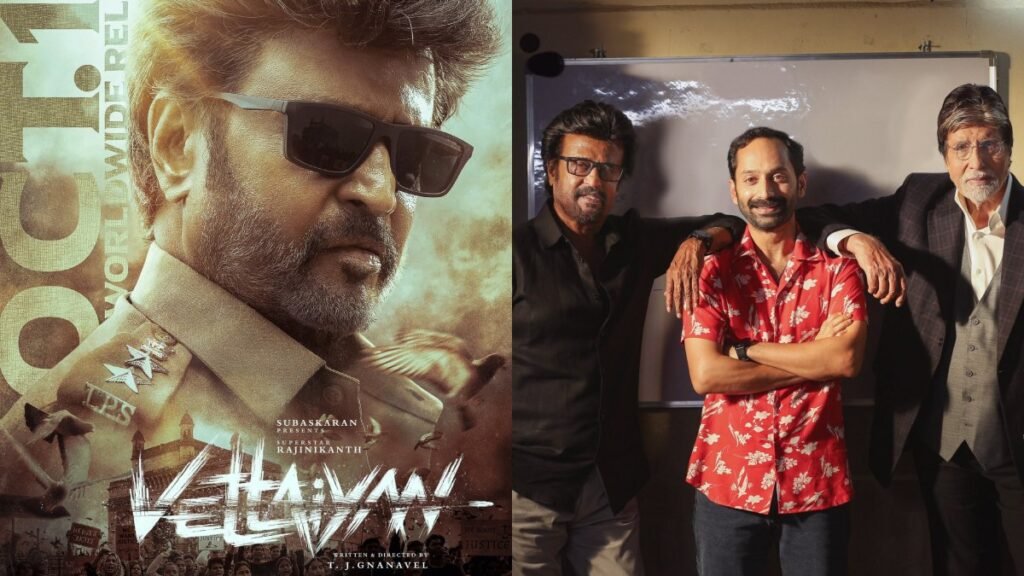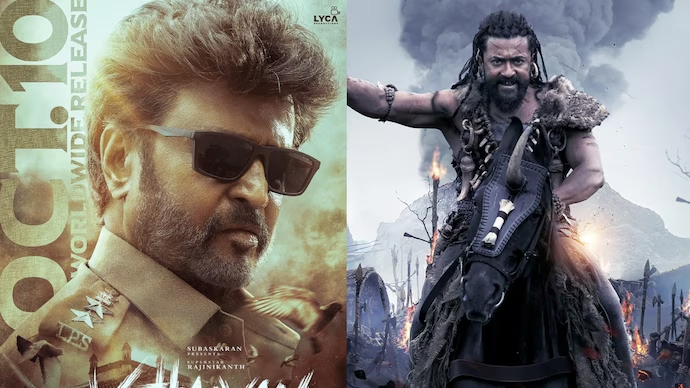Introduction
- Excited for Vettaiyan, the upcoming Tamil movie? Get ready for action, drama, and captivating performances in this highly anticipated film.
Vettaiyan is a powerful and iconic character from the 2005 Tamil epic film “Chandramukhi”, directed by P. Vasu. The character was portrayed by Rajinikanth, one of the most celebrated actors in Indian cinema. Vettaiyan’s persona as a cruel, authoritative king with a complex psyche has intrigued audiences, leaving a lasting mark in Tamil film history. The role of caste and power dynamics play a significant part in shaping Vettaiyan’s narrative. This article delves into the origins, influence, and cultural significance of Vettaiyan, providing a comprehensive analysis.
History Behind Vettaiyan
Vettaiyan is depicted as a ruthless feudal king, belonging to an unspecified royal lineage in the movie. While the movie does not explicitly refer to his caste, it hints at a powerful background in feudal Tamil society, where landowners and royals exerted great influence. Vettaiyan is shown as a man obsessed with control, wealth, and dominance, traits commonly attributed to oppressive rulers in historical and fictional works.
| Aspect | Details |
|---|---|
| Character Name | Vettaiyan |
| Portrayed By | Rajinikanth |
| Movie | Chandramukhi (2005) |
| Role | A feudal king with a penchant for power, authority, and dominance over women and subjects. |
| Caste Implications | While not directly stated, Vettaiyan represents the feudal upper caste, symbolizing power and control over lower sections of society. |
| Historical Context | Vettaiyan’s character draws from historical instances of oppressive kings who ruled vast territories in Southern India. |
Caste and Power Dynamics in Vettaiyan’s Story
Although “Chandramukhi” doesn’t openly highlight caste, Vettaiyan’s character can be interpreted as an allegory for the caste hierarchies that existed in feudal times. His oppressive control over women and his obsession with wealth and authority symbolize the tyrannical rule of the upper castes in some historical contexts.
Vettaiyan’s relationship with his subjects, especially his fascination with Chandramukhi, a courtesan, also reflects the unequal power dynamics between rulers and the common people. His inability to control Chandramukhi’s spirit and her eventual revenge symbolizes the fight against oppression, often linked to caste or class struggle in Indian storytelling.
Advantages of Vettaiyan’s Character in Tamil Cinema
| Advantages | Description |
|---|---|
| Iconic Villain | Vettaiyan is one of Tamil cinema’s most memorable villains. His cruel, cunning nature made him a character that audiences loved to hate, thereby making the film more engaging. |
| Cultural Resonance | The character draws from deep-rooted feudal and caste-based oppression, which makes it culturally relevant in a historical sense. |
| Complex Characterization | Vettaiyan was not a one-dimensional villain; his layered persona, including his insecurities, arrogance, and eventual downfall, gave depth to his role. |
| Revenge and Redemption Theme | Vettaiyan’s narrative arc allowed the film to explore themes of revenge and redemption, both crucial in many successful Indian stories. |
| Impact on Rajinikanth’s Career | The role further solidified Rajinikanth’s versatility as an actor, proving that he could handle both heroic and antagonistic roles with equal ease. |
| Strong Fan Base | Vettaiyan helped build a strong fan base for Rajinikanth, particularly for his portrayal of eccentric, powerful characters. |
| Connection with Tradition | The portrayal of an old-world king dealing with spiritual and emotional turmoil resonates with traditional stories of conflict between good and evil in Indian culture. |
| Inspirational for Future Villains | The character served as an inspiration for future Tamil cinema villains, with his intelligence, arrogance, and ruthlessness setting a benchmark for how villains are written. |

Conclusion
Vettaiyan stands as an iconic figure in Tamil cinema, embodying the themes of power, oppression, and the eventual downfall of tyranny. His character is deeply rooted in the history of feudal kings who ruled with an iron fist, further complicated by caste implications. Rajinikanth’s portrayal of Vettaiyan elevated the character into one of the most memorable antagonists in Indian cinema.
The character offers valuable lessons on the complexities of authority, revenge, and justice. His arc showcases how unchecked power leads to one’s ruin, a moral that resonates across cultures and eras. Though Vettaiyan is a product of fictional storytelling, his influence is felt deeply in the cultural consciousness of Tamil audiences.
Frequently Asked Questions (FAQ)
Q: Who played the role of Vettaiyan in “Chandramukhi”?
A: Rajinikanth portrayed Vettaiyan in the 2005 film “Chandramukhi.”
Q: Is Vettaiyan based on a real historical figure?
A: No, Vettaiyan is a fictional character. However, the depiction draws on the historical theme of feudal kings in Tamil Nadu.
Q: What is the significance of Vettaiyan’s obsession with Chandramukhi?
A: Vettaiyan’s obsession with Chandramukhi symbolizes his desire for control and power, both over individuals and his kingdom. His failure to win her represents the downfall of unchecked arrogance.
Q: How does the film portray the caste dynamics in Vettaiyan’s story?
A: While the film does not explicitly reference caste, Vettaiyan’s role as a powerful feudal king hints at the hierarchical caste systems that existed during feudal times. His oppressive behavior toward Chandramukhi reflects the power imbalance.
Q: How did Rajinikanth’s portrayal of Vettaiyan impact Tamil cinema?
A: Rajinikanth’s portrayal of Vettaiyan is considered one of his finest performances. It added a layer of complexity to the typical villain character in Tamil cinema and set a new standard for future antagonists.
Q: What themes are explored through Vettaiyan’s character?
A: The main themes explored through Vettaiyan’s character are power, revenge, oppression, and the consequences of arrogance and tyranny.
Q: What is the cultural significance of Vettaiyan?
A: Vettaiyan represents a broader commentary on feudal kings and power imbalances. His portrayal resonates with Tamil audiences because it draws upon historical and cultural themes of oppression, authority, and the eventual downfall of tyrannical rulers.
Final Thoughts
Vettaiyan, as a character, showcases the nuances of power dynamics, revenge, and the complex moralities of kingship. His legacy in Tamil cinema, embodied through Rajinikanth’s performance, continues to resonate, not just as a fearsome villain but also as a commentary on the human desire for control and the repercussions of unchecked ambition. The film’s enduring popularity underscores the timeless nature of these themes.
For More Information, Visit https://filmitalks.in/
